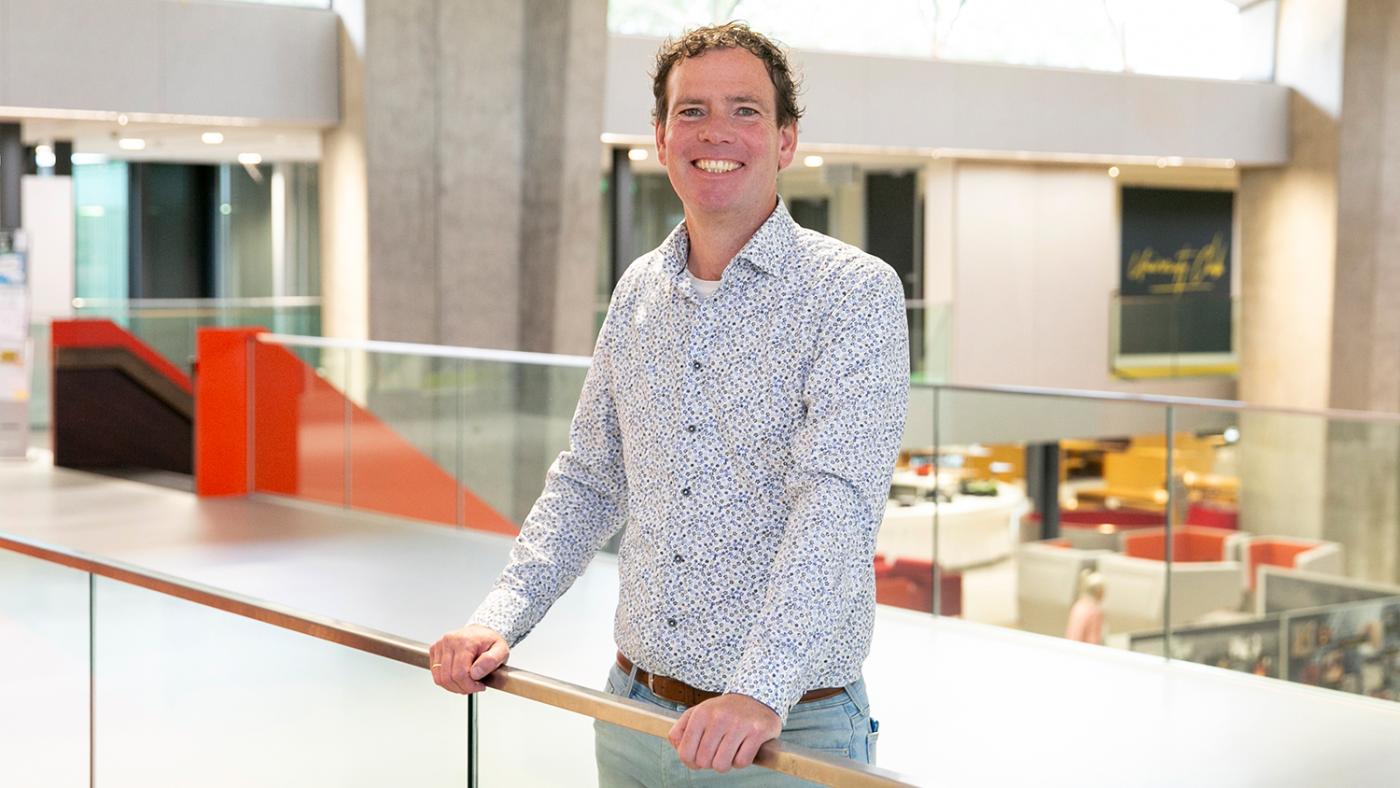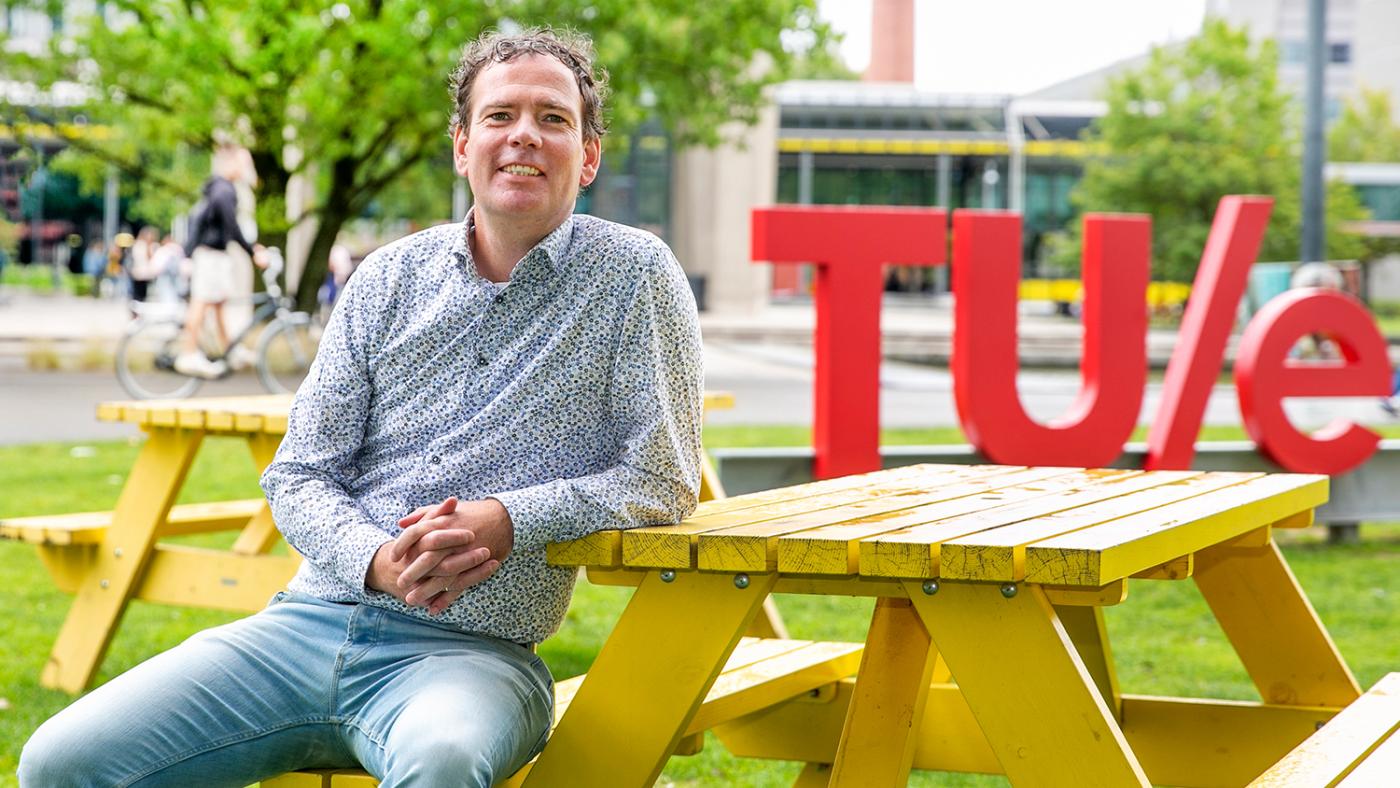UU students get their own ombudsperson
‘I can always grab the phone and ask what happened’

There already was an ombudsperson for staff members but now students can turn to an independent and impartial ombudsperson as well. Three months ago, Notten started holding an office beside Career Services to handle students' complaints. He is there every Monday and Tuesday morning. He has the exact same role at the Eindhoven University of Technology, where he is available for half a day each week.
Prior to these positions, Notten was working at ROC Midden Nederland as a student participation secretary, which means he also handled students' complaints, in addition to supervising the student council. In addition, he has served as a community mediator in Utrecht for years. Notten graduated in Sociology and International Relations at UU.
Less than ten students have turned to Notten in the three months since he debuted in the role, but he expects more to come soon. By means of comparison, the ombudsperson at Vrije Universiteit Amsterdam, which has considerably fewer students, works four days a week. About two hundred students drop by his office each year.
Agreement
In recent years, calls for such an independent and impartial person have become ever louder in academia and in The Hague. Universities were keen to have an ombudsperson to detect inappropriate behaviours sooner and contribute to a feeling of safety.
For a short while, there were talks about legally requiring universities to have an ombudsperson. However, things didn’t go that far. In 2021, trade unions agreed that Dutch universities should have their own ombudspeople. That same year, UU announced that it would be appointing two ombudspersons: one for the staff and one for the students.
Last resort
The position of ombudsperson for UU students works a bit differently. In principle, this person is not primarily concerned with inappropriate or abusive behaviour, but rather with identifying and solving problems within the organisation.
Students who feel that the university did not properly help them with a complaint or problem can turn to Notten. The nature of the complaints varies widely, from students with a disability who didn't get the facilities to which they were entitled to students whose ability to perform in an exam was affected by certain events or circumstances.
Before students end up at Notten's office, they have usually gone through several steps. The idea is that students will go to the faculty's student advisor, tutor, or complaints coordinator first. The confidential advisor is another professional they can turn to. "If, after all that, the student still feels as though they were not helped properly by the university, the ombudsperson is there as a last resort."

Both sides of the story
Notten advises students, acts as a mediator, and is allowed to start his own investigation when he identifies signs of trouble. He is allowed to request all documents from the university and can report abuse to the Executive Board.
He always tries to "get all those involved at the table first.” As a mediator between students and the university, he is the one who investigates what went wrong. He listens to both sides of the story and points out if anyone did not follow the rules. Notten is neither on the side of the student nor on the side of the university, which is substantially different from the working method of the confidential advisor, who is always on the side of the complainant.
Little rules
Communication is where things often go wrong, according to Notten. Students may feel like they’re going from pillar to post. “Situations seem to escalate because the parties have gotten completely disconnected from each other. Every new incident further disrupts the bad relationship. Insult is added to injury, while things perhaps could have been solved easily in the beginning.”
Notten adds that the university does not always have a good idea of how things come across to students. "The student may also have had a difficult time during their thesis or throughout the course, for which they have worked hard, so it evokes all kinds of emotions. When that happens, the university should not just say: 'Look, these are the rules.' It's also about showing that you are understanding. That is something that could be improved."
Desired behaviour
Does the university really become safer because it has an ombudsperson? “It always helps to have an independent person who can grab the phone and ask the university how something went. It makes people think.”
However, Notten observes that making the university a safer space requires a contribution from everyone. Ultimately, he hopes for a shift to conversations about appropriate behaviours. "We’re still talking a lot about inappropriate behaviour. That is completely understandable, given that we're living at a time when all kinds of excesses are coming out. However, at the end of the day, it is nicer and more sustainable to do more than address the things that go wrong. We also need to discuss how people should interact with each other."